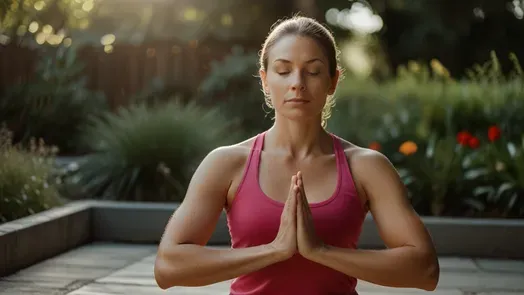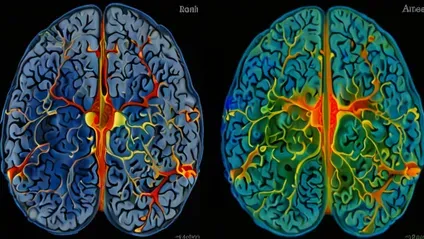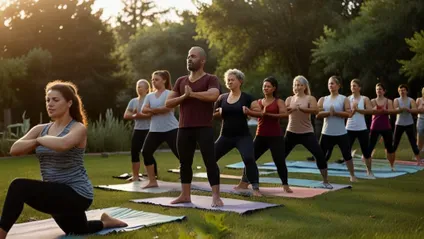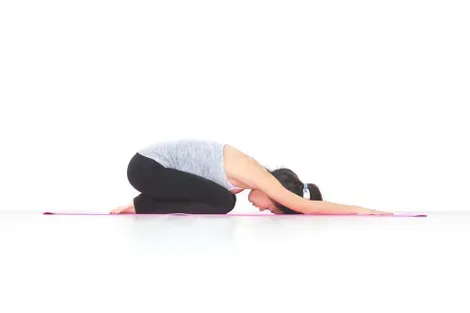Discover 7 Surprising Ways Yoga Transforms Your Mind
Table of Contents
- Enhances Mindfulness and Presence
- Reduces Stress and Anxiety Levels
- Boosts Emotional Well-being
- Improves Cognitive Function
- Fosters Connection and Community
- Encourages Better Sleep Quality
- Supports Recovery from Mental Fatigue
- Embrace Your Journey With Yoga
In a world that often feels like it’s spinning out of control, where the pressures of daily life can leave us feeling overwhelmed and disconnected, the pursuit of mental health has never been more critical.
While many view yoga purely as a physical practice one that helps in cultivating strength and flexibility it's time to delve deeper. Yoga is not just about how we move our bodies; it’s an age-old tradition that offers transformative benefits for our minds, supporting emotional balance and mental clarity.
By engaging in mindful movement, we create pathways to enhanced mental resilience, enabling us to navigate life's challenges with grace and composure.
Research continually highlights the undeniable connection between mind and body, emphasizing that our mental well-being significantly impacts overall health. Despite this knowledge, many still overlook the profound psychological benefits yoga can deliver amidst their busy lives.
This article invites you on a journey to explore seven surprising ways yoga transcends beyond mere physical fitness, unveiling its power as a tool for holistic transformation.
Whether you're a seasoned practitioner or new to the mat, embracing yoga can nurture your mental fortitude, diminish anxiety levels, foster community connections, enhance cognitive functions, and ultimately lead you toward greater emotional equilibrium.
Ready to unlock these secrets? Let’s embark on this enlightening exploration together!
Enhances Mindfulness And Presence
In our fast-paced world, where distractions abound and multitasking has become the norm, finding a grounded sense of mindfulness and presence can feel increasingly elusive.
Yoga offers a sanctuary for individuals seeking to reconnect with their thoughts and feelings, cultivating the awareness that is so often overshadowed by modern life's chaos.
The practice encourages you to observe your internal landscape without judgment an essential skill in navigating both the highs and lows of everyday existence. By learning to pause, breathe, and truly engage with our emotions in real time, we open up pathways to deeper self-understanding and acceptance.

Central to the yoga experience is breath control or pranayama—a powerful technique that dramatically enhances our ability to live in the moment. When we focus on our breath, we automatically redirect our attention away from worries about the past or anxieties about the future.
This deliberate act empowers us to centre ourselves within the present moment, fortifying mental clarity amidst life's tumult.
Consider a busy professional who feels overwhelmed at work; through simple breath exercises during breaks inhaling deeply for a count of four while exhaling slowly for six they can recalibrate their mind, transform stress into calmness, and improve productivity.
The long-term benefits of cultivating mindfulness through yoga are as profound as they are transformative. Research consistently demonstrates that individuals who regularly engage in mindful practices experience significant reductions in anxiety levels while simultaneously improving concentration and focus.
Picture a student preparing for exams: by integrating yoga sessions into their routine, not only do they nurture their physical fitness but also enhance cognitive abilities leading up to high-stakes tests.
Over time, these practitioners often find themselves calmer under pressure and better equipped to handle life's inevitable challenges all thanks to this enriched connection between body and mind instilled by yoga.
Ultimately, embracing mindfulness through yoga paves the way towards a more fulfilled life characterized by presence rather than distraction. It encourages us not only to acknowledge our feelings but also provides us with effective tools like controlled breathing to manage them adeptly.
This newfound clarity allows participants to navigate each day with deeper intention and purpose, laying robust foundations for improved emotional resilience going forward. If you're ready for such transformation in your life, it's time to unroll your mat and start exploring what yoga can do for your growth journey!
Reduces Stress And Anxiety Levels
In today’s high-pressure environment, stress and anxiety have become a common experience for many. Thankfully, scientific evidence supports yoga as a highly effective tool in combating these challenges.
Research has demonstrated that regular yoga practice can significantly lower cortisol levels the hormone primarily responsible for stress.
By actively engaging in rhythmic breath control, physical postures, and mindfulness techniques, individuals can cultivate a deeper sense of calm a transformation that is not merely anecdotal but backed by robust scientific studies.
When we delve into the mechanisms through which yoga works its magic on our minds, we uncover a fascinating interplay between body and brain. For example, practices such as deep breathing (pranayama) enhance parasympathetic nervous system activity, which induces relaxation and counteracts the fight-or-flight response triggered by stress.
This physiological shift is complemented by mindful movements known as asanas that encourage greater blood flow to the brain, promoting mental clarity while simultaneously calming racing thoughts.
Individuals who consistently engage in yoga often report feeling less reactive to stressors they once found overwhelming; this resilience stems from the profound mental discipline cultivated through regular practice.

One compelling testament to the power of yoga lies in its ability to lead practitioners toward an empowered approach to daily pressures. Imagine being caught in rush-hour traffic or facing looming deadlines at work these scenarios typically provoke feelings of anxiety.
However, those who regularly incorporate yoga into their routines often navigate such hurdles with newfound grace and composure.
Rather than succumbing to panic or frustration, they draw upon the grounding techniques learned on the mat like focused breathing and present-moment awareness to remain centred amidst the chaos.
The delightful irony is that through cultivating awareness during peaceful moments in class, one builds an arsenal of coping strategies for life’s inevitable storms outside those studio walls.
Ultimately, by embracing a dedicated yoga practice focused on reducing stress and anxiety levels, you equip yourself with invaluable tools for emotional resilience.
Whether you're just beginning your journey or looking to deepen your existing practice, know that every session offers an opportunity to unravel tension held within both your mind and body. Dive into this transformative experience; your calmer self awaits!
Boosts Emotional Well-being
Yoga is more than just a physical practice; it significantly nurtures emotional regulation, fostering a sense of balance and stability that individuals often crave in their daily lives.
By encouraging mindfulness and self-reflection, yoga provides practitioners with tools to manage their emotions effectively. This connection between body and mind allows participants to observe their feelings without judgment, promoting healthier responses to life's challenges.
In essence, yoga helps individuals recognize emotional triggers, creating an opportunity for proactive management rather than reactive outbursts.
Research has shown that regular yoga practice can be instrumental in reducing symptoms of depression. For instance, a study published in the "Journal of Clinical Psychology" found that participants who engaged in consistent yoga sessions showed considerable reductions in depressive symptoms compared to those who didn’t incorporate yoga into their routines.
The combination of movement, breathwork, and meditation fosters a biochemical environment conducive to increased serotonin levels notably beneficial for mood enhancement. Practitioners often report feeling lighter, more joyful, and equipped with vitality they never thought possible after merely dancing through a sequence of sun salutations.
Anecdotal evidence from seasoned yogis echoes these findings. Many practitioners have shared personal stories that highlight transformative shifts in their emotional landscapes due to yoga's influence.
One individual recounted how incorporating restorative practices into her routine during difficult periods not only enhanced her emotional resilience but also grounded her during moments of turmoil.
She described how simple poses like Child’s Pose or Legs-Up-the-Wall could turn her spiralling thoughts into calm contemplation essentially allowing her grief to pass without being overwhelmed by it. It’s these shared experiences within the yoga community that pave the way for understanding: embracing vulnerability leads us towards genuine empowerment.
Ultimately, fostering better emotional well-being through yoga cultivates an environment where negative emotions are allowed space but do not dictate life’s narrative.
By building robust mental frameworks alongside deliberate physical movement, individuals take on a renewed sense of agency over their emotional landscape—a journey worth embracing for anyone seeking stability amid life's storms.
If you find yourself grappling with mood swings or bouts of despair, allow yourself the gift of exploring yoga's remarkable capacity to enhance your emotional health and invite deeper fulfillment into your life.
Improves Cognitive Function
In recent years, a growing body of research has underscored the surprising cognitive benefits that yoga can offer practitioners. Studies have shown that engaging in regular yoga practice may enhance brain function significantly by improving areas such as memory, attention span, and overall creativity.
Brain scans following yoga sessions have indicated increased blood flow to crucial regions responsible for complex thinking and problem-solving, suggesting that not only does the practice foster relaxation but it also promotes active engagement of our cognitive faculties.
Furthermore, the very techniques adopted during yoga such as breath control (pranayama) and mindful movement have been linked to sharpened focus and mental clarity. For instance, many practitioners report an ability to concentrate better on their work tasks after practicing yoga.
They find that they can sift through distractions more easily and maintain a longer attention span when working on projects or tackling challenging situations. Imagine breezing through your day with sharp focus a tangible outcome arising from a simple 20-minute morning session on your mat.

Beyond attention enhancement, yogic practices have also shown positive effects on memory retention. One study found that subjects who engaged in regular yoga demonstrated marked improvements in both short-term recall tasks and long-term memory functions.
Such improvements are essential in today's information-saturated environment, where we are often overwhelmed with constant stimuli demanding our attention. Incorporating elements of yoga into your daily routine could therefore provide the necessary boost for navigating life’s complexities more effectively.
Additionally, cultivating creativity is another remarkable benefit associated with regular practice. Many artists and writers attribute their bursts of inspiration to the mental clarity achieved through mindfulness exercises integral to yoga routines.
By quieting the mind and focusing on breathwork, individuals report having “aha” moments during or after their sessions. This could translate into innovative solutions at work or captivating creative expressions if you're pursuing artistic endeavors.
Thus, a commitment to exploring yoga not only nurtures physical well-being but enriches cognitive functionality your mind will thank you!
Fosters Connection And Community
In a world where loneliness and isolation have become increasingly prevalent, the communal aspect of yoga stands out as a beacon of connection. Group classes create an environment not only for physical practice but also for shared experiences that foster deep social ties among participants.
When you roll out your mat next to others, you’re engaging in a collective journey of personal growth and mindfulness. The simple act of breathing in sync or following the same sequence can lead to an unspoken bond between practitioners, weaving together a fabric of community that enriches both body and spirit.
Supportive relationships built through yoga extend far beyond the classroom. These connections thrive on mutual encouragement and understanding as individuals share their challenges and triumphs while practicing mindfulness together.

Imagine attending a weekly class where attendees regularly exchange stories about finding peace amid chaos or navigating life's hurdles with resilience this supportive network transforms yoga into more than just a workout; it becomes a lifeline for many, offering emotional backing when life feels overwhelming.
Furthermore, fostering these new friendships confronts feelings of isolation head-on. Practicing alongside others promotes a sense of belonging a fundamental human need often compromised by today’s fast pace.
For those who find themselves disconnected due to various circumstances such as work pressures or personal struggles, joining a local yoga group or participating in community workshops can be life-altering.
It creates a space where people come together not only to maintain physical health but also to lift each other emotionally, reinforcing the idea that no one has to navigate life alone.
Ultimately, embracing the communal experience within yoga practice encourages us all to open our hearts and broaden our horizons I invite you to seek out your local classes or online communities tailored around this ancient discipline.
By investing time in cultivating these connections through collective practices, you are not just enhancing your mental well-being; you're also contributing positively to someone else’s journey towards happiness and serenity. So take that leap join that class you've been contemplating and embrace the transformative power of community found in yoga!
Encourages Better Sleep Quality
In today’s fast-paced world, good sleep often feels like a luxury rather than a necessity. However, several studies have demonstrated a compelling link between yoga practices and improved sleep quality.
Engaging in regular yoga not only helps to ease the mind but also actively encourages relaxation, making it an effective tool for combatting insomnia and fostering restorative sleep.
By incorporating various postures and breathing techniques into your nightly routine, you can transform your bedtime from a period of anxiety into one characterized by tranquility and restfulness.
Yoga's gentle stretches and breath control are particularly beneficial for promoting relaxation before bedtime. Practices such as restorative yoga or simple gentle poses like Child's Pose or Legs-Up-the-Wall create an environment conducive to winding down.

Specific breathing exercises such as Nadi Shodhana (alternate nostril breathing)—help calm the nervous system, reduce heart rate, and foster a sense of serenity that is essential for achieving deep sleep.
These methods act like a lullaby to the body, easing muscle tension, reducing cortisol levels, and signaling to your brain that it’s time to slow down for the evening.
The experiences of many individuals highlight how impactful yoga can be on sleep quality. For instance, Sarah, a dedicated practitioner who struggled with insomnia for years, found profound relief through her evening yoga sessions.
"I never knew how much my racing thoughts were affecting my ability to fall asleep until I started practicing,” she shares. “Now three nights out of five, I’m asleep within minutes."
Her story echoes that of countless others who testify that consistency in practicing even light yoga has led them toward achieving blissful slumber—not just an occasional surge of restful nights but sustainable improvement in their overall sleeping patterns.
As we embrace the myriad benefits that come with integrating yoga into our lives a practice deeply rooted in mindfulness and self-care it’s clear that better sleep quality isn’t merely wishful thinking; it's achievable through dependable routines nurtured by yoga.
Every small step leads us closer to peaceful nights filled with restorative rest; therefore, consider adding this life-affirming practice to your pre-sleep ritual and feel the positive ripple effects manifest throughout your day!
Supports Recovery From Mental Fatigue
In today’s fast-paced world, the line between productivity and burnout can easily blur, leaving many individuals feeling exhausted both physically and mentally. Mental fatigue often manifests as diminished cognitive function, decreased motivation, and heightened stress levels.
This is where yoga steps in with its restorative practices, particularly styles like yin and restorative yoga, which are specifically designed to counteract these feelings of mental depletion.
These types of yoga focus on long-held postures that allow the body to relax deeply while promoting mindfulness providing a nurturing space for both recovery and reflection.
Research has demonstrated that engaging in restorative yoga not only helps replenish energy but also aids in brain recovery. A study published in the Journal of Clinical Psychiatry found significant reductions in perceived levels of stress and improvements in overall mood among participants who practiced restorative yoga regularly.
The slow, gentle nature of these postures invites stillness into our hectic lives, allowing practitioners to reset their mental state and enhance neural regeneration through increased blood flow to the brain. By stimulating this process, you actively create an environment conducive to sharper thinking and greater emotional resilience.
Incorporating restful poses into your daily routine doesn’t need to feel daunting; it can be as simple as dedicating ten minutes each day to a few select stretches or breathing exercises.
Poses like Child’s Pose or Legs-Up-The-Wall not only soothe tension but also encourage introspection offering moments for quiet contemplation that invigorate your mind over time. Consider using these strategies during breaks at work or before bedtime; even brief sessions can provide significant relief when consistently integrated into your life.
So as you embark on or continue your journey with yoga, remember that it’s more than just physical practice; it's a powerful ally against mental fatigue.
Embracing these techniques can lead to clearer thoughts and renewed energy while simultaneously fostering deeper connections with yourself amidst everyday challenges.
Let every pose become not just a movement but a step toward restoring your mind's vitality your future self will thank you for prioritizing such essential wellness.
Embrace Your Journey With Yoga
In our exploration of the myriad ways yoga can transform your mind, we have unveiled seven powerful effects that extend well beyond the realm of physical fitness.
From enhancing mindfulness and reducing anxiety to improving emotional well-being and fostering community connections, each facet highlights yoga's profound impact on mental health.
These motifs weave together a narrative of resilience, empowerment, and clarity crucial elements in navigating the complexities of modern life. By integrating these practices into your routine, you are not just investing in physical strength; you are nurturing a fertile ground for mental rejuvenation and stability.
Now is the time to embrace your journey with yoga wholeheartedly. Don’t be deterred by misconceptions or past experiences; rather, recognize that this ancient discipline offers an open doorway to greater self-awareness and tranquility.
Whether you’re a seasoned practitioner or just starting, take those first steps towards exploring how yoga can enrich your life.
Prioritize your mental wellness and engage in this transformative practice today you deserve it! Let each breath guide you closer to harmony, ensuring that as you face daily stressors, you are equipped with the tools necessary for thriving in every moment.
People Also Asked
How does yoga enhance mindfulness?
- Yoga encourages focused breath control and mindful movement, helping practitioners stay present and aware of their thoughts and emotions.
Can yoga reduce stress and anxiety?
- Yes, regular yoga practice lowers cortisol levels and enhances relaxation through breath control and mindful postures.
How does yoga improve emotional well-being?
- Yoga fosters emotional regulation by promoting mindfulness and self-reflection, leading to healthier responses to life's challenges.
What cognitive benefits does yoga offer?
- Yoga enhances memory, attention span, and overall cognitive function by increasing blood flow to the brain and promoting mental clarity.
How does yoga foster community connections?
- Group yoga classes create supportive environments where participants share experiences and form deep social ties, reducing feelings of isolation.
Can yoga improve sleep quality?
- Yes, yoga promotes relaxation through gentle stretches and breath control, making it an effective tool for combatting insomnia and improving sleep quality.
How does yoga support recovery from mental fatigue?
- Restorative yoga practices counteract mental depletion by promoting deep relaxation and mindfulness, aiding in brain recovery.
Is yoga suitable for beginners?
- Absolutely. Yoga is adaptable to all levels, and beginners can start with simple poses and breathing exercises to gradually build their practice.
What are some specific yoga techniques for reducing anxiety?
- Techniques like deep breathing (pranayama) and restorative poses (Child's Pose, Legs-Up-the-Wall) are effective in reducing anxiety.
How often should I practice yoga to see mental benefits?
- Consistent practice, even just a few times a week, can lead to significant mental and emotional benefits.





